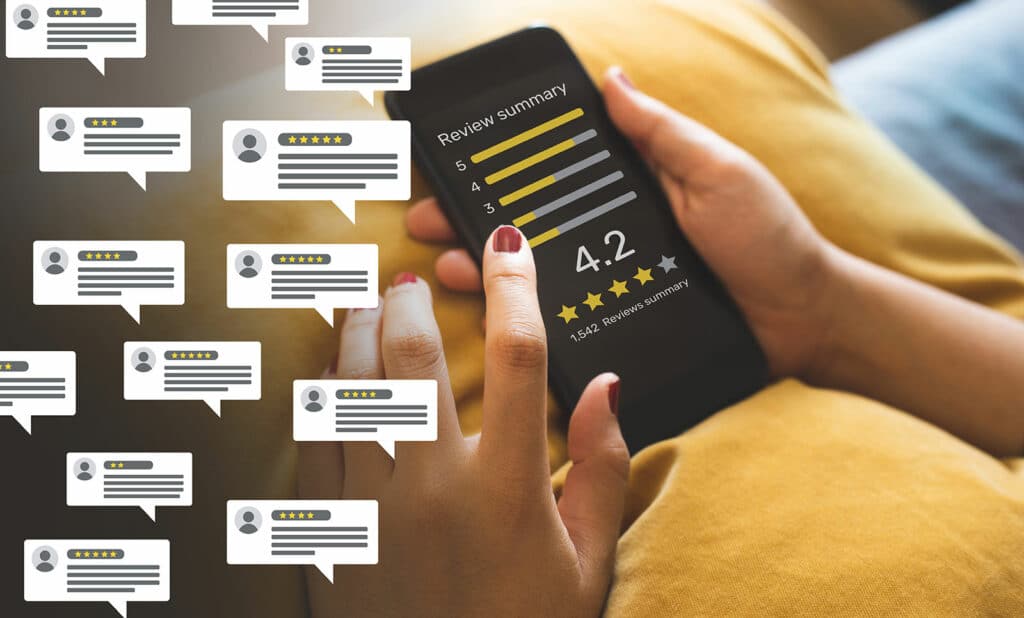Table of Contents
- Mental Health Marketing Ideas
- 1. Normalize mental health discussions.
- 2. Start a blog.
- 3. Strengthen your social media presence.
- 4. Utilize search engine optimization.
- 5. Focus on your local market.
- 6. Include testimonials.
- 7. Complete your Google Business listing.
- 8. Make contacting you as easy as possible.
- FAQ
- Did this article answer your questions?
Mental Health Marketing Ideas
Professional mental health support is an essential service in any community. Mood disorders, anxiety disorders, addiction, and other mental health concerns can pose a true threat to an individual’s well-being, and everyone should feel like they have somewhere to turn if they need help. Your mental health clinic offers valuable healthcare services, but you have to make your presence known to your potential clients.

A strong marketing strategy will help your mental health service provider facility thrive. By focusing heavily on digital marketing and branding, you establish your place in your industry, build trust between yourself and your audience, and allow people in need to find your services.
Developing a comprehensive behavioral health marketing campaign takes time and patience. You should think deeply about the message you want your program to send to past, current, and future clients. By carefully crafting both your content marketing and healthcare marketing strategies, you ensure that your business stays true to its mission while building connections in your community.
Here are eight mental health marketing ideas that you can implement to help your treatment center thrive:
1. Normalize mental health discussions.
Mental health centers face a unique challenge in the digital marketing sphere because the topic of mental health is still considered somewhat taboo. However, as a treatment center owner, you should not shy away from discussions about mental and emotional health. In recent years, and since The pandemic has had a significant impact on mental health around the world, there have been great strides toward accepting and normalizing mental health disorders, and open conversations about mental illness have played a key role in this shift.

As you reflect on your brand image and your mission statement, make a commitment to yourself and your program to speak authentically about mental health. Don’t try to shy away from these important topics or speak vaguely about mental health disorders. Understand the vital role that your facility plays in your community, and embrace these difficult conversations in your marketing content so that your clients feel seen, heard, and validated. You would also want your client’s loved ones to be able to trust you.
2. Start a blog.
Content creation is an essential component of all marketing strategies. By posting helpful, informative, and engaging blog content, you can turn your website into a hub for mental health resources. Prospective clients may find your website when they’re searching for mental health information, and they’re highly likely to take an interest in your services. High-quality blog content also helps your program establish itself as a trustworthy, knowledgeable organization, so it’s an excellent opportunity to improve your brand image to your target audience.
Your options for blog topics related to mental health are virtually limitless. You could post content about specific mental health disorders, their symptoms, and their treatment options, or you could write more broadly about emotional wellness topics like stress management, mindfulness, or healthy relationships.
Throughout your blog content, try to naturally link back to your homepage, service area page, or contact page and make sure your website design is visually appealing. At the end of each post, you can also include a call to action to encourage your readers to reach out if they need support. Your blog should focus more on offering useful information than on advertising your services, but you can always connect your topics back to your practice. Additionally, you can use your blog to make important announcements regarding your treatment center so that your existing audience can stay up-to-date on your program.
Social media marketing can be tricky for mental health centers due to privacy concerns. While some businesses can post candid photos and videos of the daily happenings at their location, you must be extremely careful to protect the privacy of your clients. This doesn’t mean your facility can’t have a social media presence, though. You could still use social media as a digital marketing strategy.
Facebook, Instagram, Twitter, and YouTube can all be useful platforms when marketing for mental health services. Because you’re limited in your ability to post photos of your program, you can use your social media accounts primarily as educational resources. For example, you could summarize your blogs with bulleted lists or infographics and post these resources to your profiles with a link back to the full article.

Another option is to highlight the behind-the-scenes of your treatment center by posting therapist spotlights or staff biographies. You could post some photos or videos of the interior of your facility, too, as long as no clients or private information is featured in the content. Mixing these personal posts in with your educational content will help your audience connect more closely to your business.
Social media is a valuable resource for connecting directly with potential clients, too. Some people are much more likely to reach out to a business through social media than through phone or email. If you allow your followers to send you messages directly via Facebook or Twitter, you’ll find that communication with your audience becomes much more efficient.
4. Utilize search engine optimization.
Search engine optimization (SEO) is a vast and complicated topic, but you can incorporate the core components of this strategy into your website. The purpose of SEO is to increase your site’s search rankings for specific search terms so that potential clients can more easily find your business.
Keywords are at the foundation of any SEO strategy. First, think about your audience and what they might search for on Google. Then, choose a few specific phrases to target in your website content. Because your program has a physical location, it may be best for you to focus on location-based search terms. For example, you might utilize the target phrase, “treatment for depression in Phoenix.” You can also focus on local SEO words to improve its visibility in local search results. The goal of local SEO is to increase the online presence of a business and attract more customers from the local area.
Once you’ve narrowed down your keywords, try to incorporate them within your website content. You can use these phrases as inspiration for blog topics, and you can include them on your homepage or services pages. It’s important to use these keywords naturally, though. Stuffing your website with keywords to boost your SEO can harm your rankings and make your website seem cluttered, confusing, or unprofessional.
5. Focus on your local market.
Clients sometimes travel out of state to attend an inpatient mental health program, but your facility probably serves mostly local individuals. To increase your online visibility in your area, you can focus on location-based content. For instance, you could write blog posts about specific events or concerns within your community.
Local directories are another great resource for mental health facilities. Reach out to every online directory you can find that serves your location to list your business name and contact information. Not only does this help prospective clients find you when they search these directories, but it can also boost your website’s search rankings. The more times your business name, address, and phone number are listed on the web, the better your ranking becomes. This information must always be written in the exact same way, though, so you should double-check that all of your directory listings are accurate and consistent.

6. Include testimonials.
You should handle the subject of reviews and testimonials carefully so that you don’t pressure your clients to publicly reveal personal information. If a client has a positive experience with your program, though, you could ask them if they’d like to write a testimonial under a pseudonym. When prospective clients can hear directly from people who have gone through the program, they’ll gain a stronger sense of trust in your treatment center.
7. Complete your Google Business listing.
Your Google Business Profile provides an opportunity for nearby individuals to discover your clinic through a location-based search. The profile includes information like your address, phone number, hours of operation, and client reviews. Searchers can use your profile to call you directly, navigate to your facility with Google Maps, or visit your website. By filling out your listing, you make it as easy as possible for people in your area to learn about your business.
8. Make contacting you as easy as possible.
All businesses can expand their client base by making their communication more straightforward. The average web user has a fairly short attention span, and most people don’t have the patience to comb through a website to find an email address or phone number.
This is an especially relevant consideration when you work in the mental health care industry. As healthcare providers, you must be aware of your potential patients’ needs. An individual who needs your services may feel so low and fatigued that they don’t have the energy or motivation to go to great lengths to contact you. To ensure your facility is accessible to people who are experiencing a mental health crisis, you need to make contacting your program as simple as possible.
Completing your Google Business Profile is one way to accomplish this as the listing includes a one-click call button on mobile devices. Your center’s phone number and email address should also be listed on every page of your website, and your contact page should be easy to find from your homepage. You could include a form on your website for visitors to schedule a consultation, but you should keep this form as brief and simple as possible so that the individual doesn’t feel overwhelmed.
Strategically marketing your mental health program can expand your client base and improve your reputation. This requires consistent and ongoing effort. Once your marketing campaign takes effect, it’s time to measure your results, adjust your strategy, and make the necessary changes. Keep your brand identity and mission at the forefront of your mind during every step of the process, and don’t hesitate to consult with a reputable digital marketing agency to get professional input.
FAQ
How do you Promote Your Mental Health Clinic?
How to write a meta description for a counseling website?
When should a therapist use SEO?
Published on: 2022-03-03
Updated on: 2024-02-28